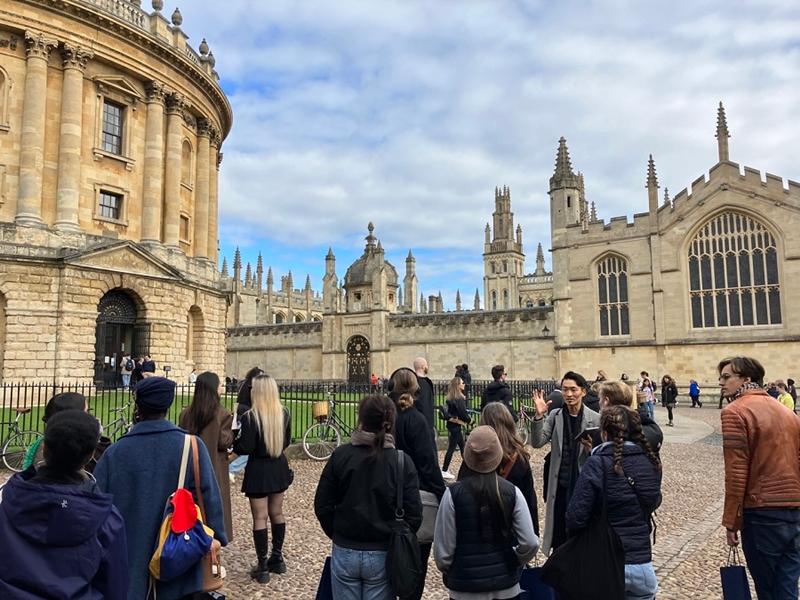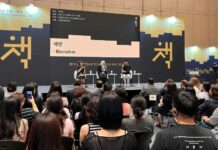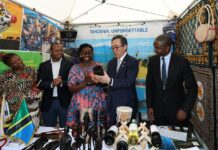
The University of Oxford of the U.K. has launched a course on the Korean language and culture for the public. Shown is a scene from “Where Oxford Meets Korea: The Walking Tour” at Oxford on Oct. 22, 2023. (Korean Cultural Centre in London)
By Choi Jin-woo
The University of Oxford of the U.K. has launched a course on the Korean language and culture for the public.
Korean media like Yonhap News on Feb. 5 said Oxford on Feb. 4 opened the 10-week UK Hallyu (Korean Wave) Academy and held the entrance ceremony the day before.
Run by the university, the academy receives support for operating expenses and joint program development from the Korean Education Centre UK.
Within the first 10 days, over 90 people registered for the biweekly course, with each class running for two hours on a noncontact metaverse platform.
Jieun Kiaer, an Oxford professor of Korean linguistics at the Faculty of Asian and Middle Eastern Studies who is in charge of planning and operating the academy, said the course will focus on the Korean language in covering every facet of Korean culture starting with K-pop, dramas, film, food and clothing.
The first half of the course will cover subjects under the theme “The Language of Hallyu” including informal and formal speech, dialects, limitations of translating “you” and “the one-inch tall barrier of subtitles” mentioned by director Bong Joon-ho during his 2020 Oscar acceptance speech.
The second half will mainly cover figures from the Silla Kingdom to the modern era like the haenyeo, or female divers on Jeju Island, Silhak (practical learning) female scholar Lee Bingheogak, painters Kim Hong-do and Shin Yun-bok, King Sejong the Great, King Jeongjo, domestic hip-hop pioneer Seo Taiji and Silla Queen Seondeok.
On Feb. 3, the entrance ceremony was held at Oxford’s Hertford College, with about 20 attendees from across the U.K.
During the ceremony, participants introduced themselves by telling how they grew interested in Korea such as learning Korean to watch K-dramas without subtitles, liking Korean foods like tteokbokki (spicy rice cake) and growing interested in Hanbok (traditional attire) after watching historical dramas.
Many others said they were initially drawn to Korean culture through K-pop sensation BTS.
Korean Education Centre UK Director Ahn Hee-seong said, “We hope that the UK Hallyu Academy can help us enter the institutional sphere by promoting Korean and awareness of Korea and adopting the language as a regular subject at British middle and high schools.”
paramt@korea.kr























